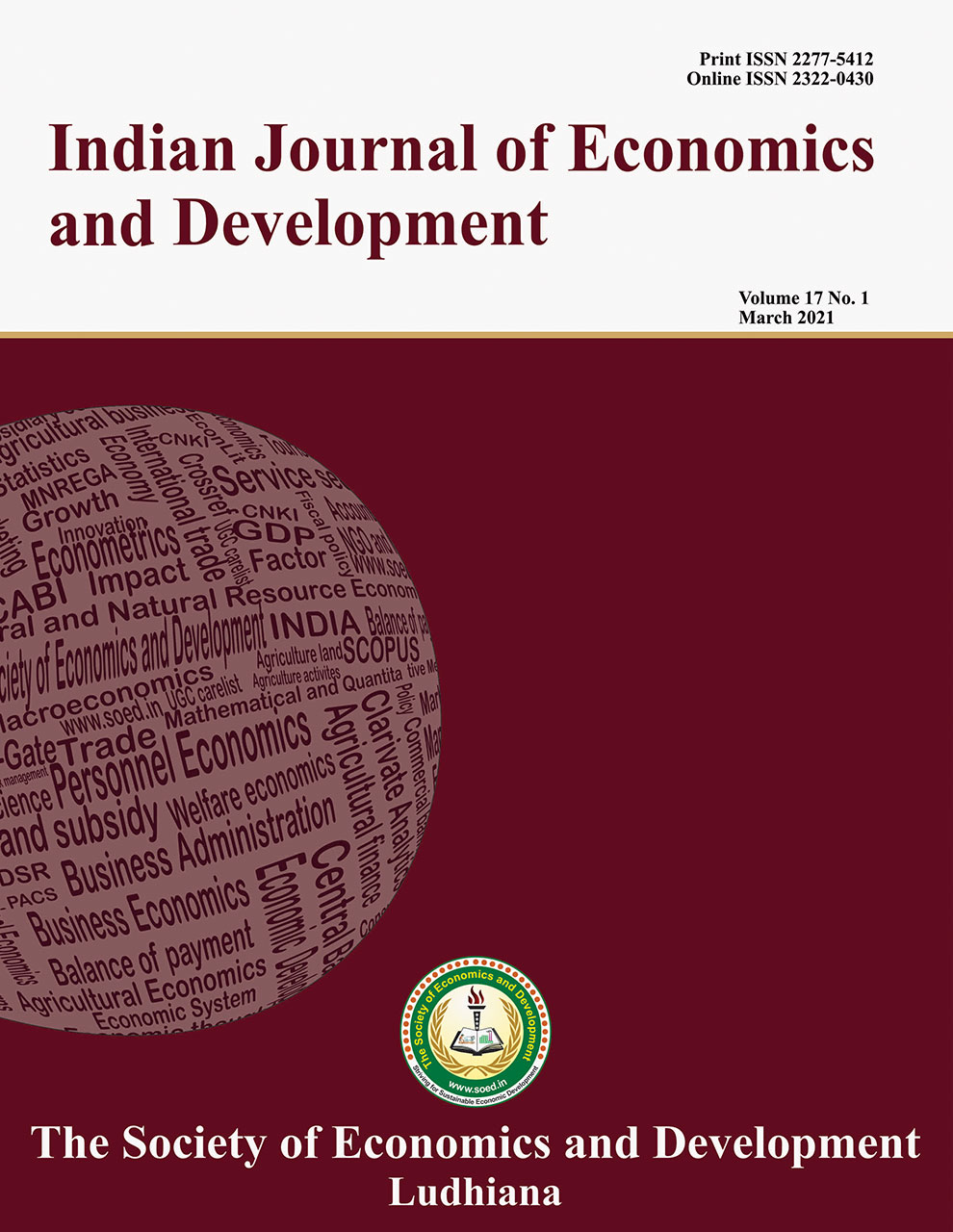Climate Smart Water Technology and its Impact on Sustainable Agriculture in Maharashtra: 24350

Price: ₹ 1000
https://doi.org/10.35716/IJED-24350
Author: Sanjay B. Sapkal, Ganeshkumar D. Rede and Dattatray J. Sanap
Author Address: Symbiosis Institute of Business Management (SIBM) Nagpur, Symbiosis International (Deemed) University, Nagpur- 440008 (Maharashtra) India.
Abstract
Climate change threatens
Indian agriculture, affecting food production and nutritional security.
Positive and negative changes in temperature and rainfall significantly impact
agricultural production. The study employed primary data from 120 farmers,
divided equally into adopters and non-adopters of drip irrigation for sugarcane
and cotton in 2023-24. Data were analyzed using tabular methods, Mann-Whitney's
test, and logistic regression was used to evaluate awareness, adoption behaviour,
and yield impacts. Chow's test checked production function changes, Bisaliah
decomposition assessed productivity differences, and groundwater savings were
estimated with the Eyhome formula. The result showed that transitioning to
climate-smart water technology in sugarcane and cotton cultivation increases
crop production by 33.10 and 42.51 per cent, saves water by 10.26 and 2.19
million litres per ha, decreases electricity use by 1273 and 296 kWh, and
reduces carbon emissions by 92.32 and 21.44 kg CE per ha. It will reduce the
government's burden and encourage cultivators in Maharashtra to adopt drip
irrigation.
Keywords:
Climate-smart, drip irrigation, Mann-Whitney's, sustainable agriculture.
JEL Codes: C22, O13, Q01, Q25, Q54.
Description
Indian Journal of Economics and Development
Volume 21 No. 2, June 2025, 000-000
https://doi.org/10.35716/IJED-24350
Impact Factor: 0.3 (Web of Science)
NAAS Score: 6.30 (2025)
Indexed in Scopus (SJR = 0.13)
Resurchify Impact Score: 0.23
UGC Approved (UGC Care List Group II)
Index Copernicus (ICV 2023: 105.09)



